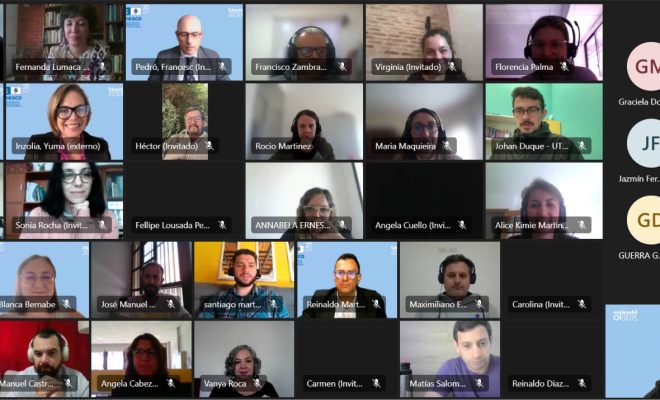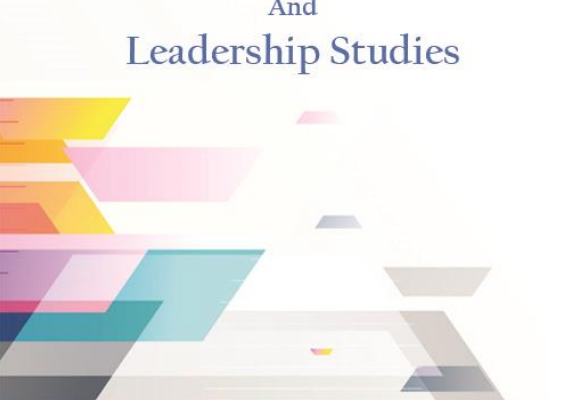UNESCO IESALC and UTEC from Uruguay sign agreement to strengthen education, culture and human development

UNESCO IESALC and the Universidad Tecnológica de Uruguay (UTEC), signed an institutional collaboration agreement to carry out joint actions to promote an innovative educational offer that trains people with a professional, creative and entrepreneurial profile in strategic areas, as well as research highly linked to the environment, which contributes to the sustainable and inclusive development of the country. Within this framework, the UTEC is interested in strengthening the skills of its teachers to implement a culture of sustainability that supports their daily work and reinforces the importance of integrating it into the curriculum.
The Sustainable Development Goals (SDGs) and the 2030 Agenda are part of the commitments of higher education institutions, therefore UTEC and UNESCO IESALC, as a first activity within the framework of the signed collaboration, initiated a program to train 40 educational and career coordinators, as well as key professors, in the transversal incorporation of key competencies for sustainability in the curriculum to provide greater alignment of the Institutional Strategic Plan with the 2030 Agenda.
On October 2, 2023, took place the inaugural session of the Course on Pedagogical Design and Education for Sustainable Development, in collaboration with the Association for Pedagogical Design and Education for Sustainable Development (ALDESD). The inaugural session was moderated by Yuma Inzolia, Director of Capacity Development at UNESCO IESALC, who highlighted how Education for Sustainable Development (ESD) is the answer to the urgent and dramatic challenges that the planet is facing, so new competencies, attitudes and behaviors that lead to more sustainable societies are needed.
“This is why education systems need to respond to this need when defining relevant learning objectives and content, introducing pedagogies that empower learners and urging institutions to include sustainability principles in their management structures,” said Inzolia.
The UTEC has been implementing different activities aligned with its Institutional Strategic Plan with the objective of establishing a roadmap aimed at establishing the necessary mechanisms to guarantee the quality and relevance of its educational model.
The session began with welcoming remarks by Graciela Do Mato, UTEC’s counselor, who highlighted the importance of establishing a personal and social transformation. She assured that through teaching, research and linkage with the environment, we must contribute to the change of culture and global challenges that we must face, to provide students with the knowledge and skills to understand the importance of the SDGs, and with this program the university will move forward on that path.
Embarking on the path of sustainable development will require a change in each of us to create a more sustainable world.
Graciela Do Mato, UTEC counselor
The ceremony continued with words by Francesc Pedró, Director of UNESCO IESALC, who emphasized the importance of this course for the Institute, and made a special recognition of UTEC as a young university, which has become a regional benchmark in technological innovation. He also highlighted the methodological approach that underpins the program, as it is eminently oriented towards practice and transformation, through a process of development of existing skills in the participants aimed at strengthening them, to have an impact on learning.
Afterwards, Amadeo Sosa, UTEC’s Director of Education, offered a message aimed at strengthening the institution’s strategy to improve its educational model aligned with sustainability: “This commitment within the 2030 Agenda, which reflects the current reality requires that professionals graduating from universities are able to lead the necessary transformations to collectively build a society open to change, economically and environmentally sustainable, technologically advanced, socially equitable, without any discrimination based on gender, national origin, ethnicity, age, ideology, religion or beliefs, social class or any other condition or personal or social circumstance, and clearly aligned with the Sustainable Development Goals.”
This course is a peer-to-peer process by finding mechanisms to share experiences and build together a path that will lead us towards institutional transformation.
Francesc Pedró, Director of UNESCO IESALC
The course offers the possibility of enhancing the value of an education that is appropriate and responsive to the new systemic conditions of uncertainty and complexity; an education that fosters in students the increasingly important qualities of adaptability, creativity, self-reliance, hope and resilience.
For 8 weeks, teachers will enhance their skills at Campus IESALC, through an understanding of education and learning theory that integrates the best of past educational practice with new emphases on transformative learning, capacity building, creativity and adaptive management, which are considered part of the new sustainability agenda. All this with the help of specialized mentors certified by ALDESD in the CodeDesign tool, with which they will work on the design of a training module of 20hs, where they will reflect activities based on transformative pedagogies, implementing the key competencies for Sustainability developed by UNESCO, through a co-creation work that is carried out in consolidated teams.
RELATED ITEMS








